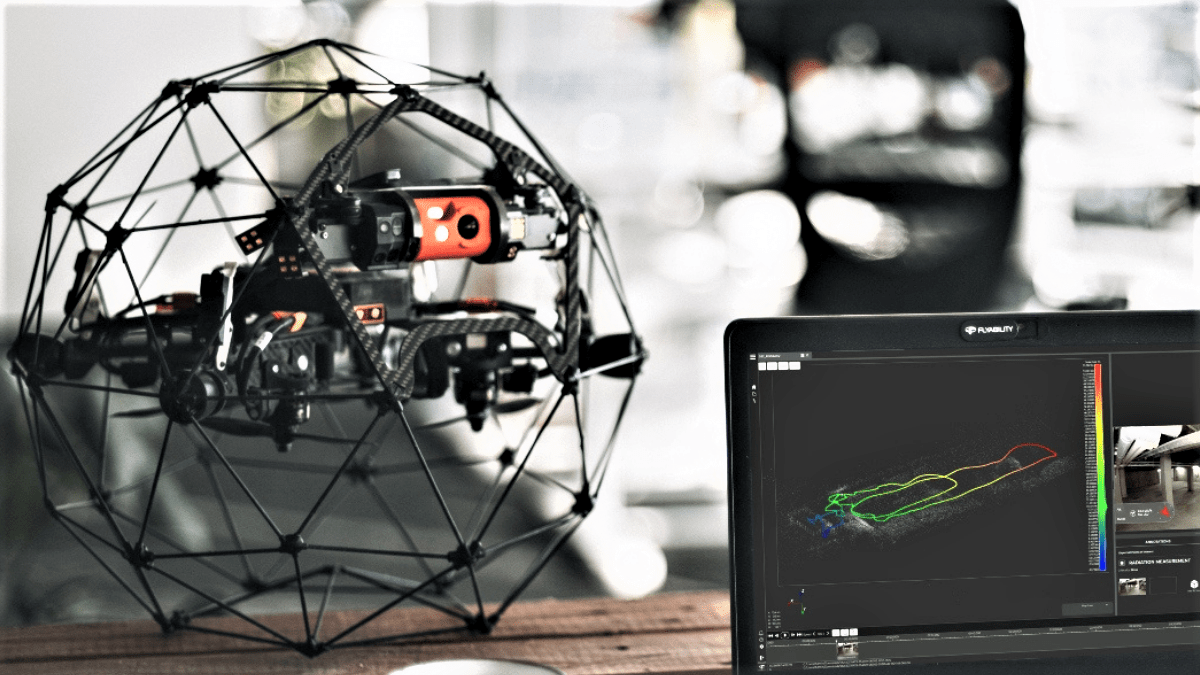
Though the Paris Métro may be over 120 years old, the famous underground subway system strives to stay young through modernization, and is now preparing to roll out new tech innovations that include robots and drones.
Operator Régie autonome des transports parisiens (RATP) has about 180 projects currently underway to test or deploy new tech applications to ease operation and increase efficiency and safety. Among those are use of Flyability Elios 2 drones in the Paris Métro to perform inspections of elevated assets, or access and visualize equipment difficult for humans or other machines to reach. A similar concept is trialing Boston Dynamics’ robotic dog to remotely check on nearly 230 km of rails and 308 stations.
Read: Drones used to inspect Tokyo’s subway tunnels
The hope is that use of the non-polluting, battery-powered tech like drones will take some of the wear and tear – and risk – out of ongoing, primarily manual inspection of the Paris Métro’s vast infrastructure. In the case of UAVs, caged vehicles can take human eyes closer to subway structures under scrutiny, and collect or map data once there to determine whether and what renovation or repair work many be necessary.
Officials say drone inspection trials are already underway at 170 sites in the Paris Métro and suburban RER commuter system, and have cut the time job usually involved from nine or 10 hours to about 30 minutes.
Drones are also being tested for other types of safety uses, such as verifying that replacement parts or equipment stocked in elevated piles of pallets are securely stacked, and don’t risk falling.
Read: French water companies flying drones for sewer inspections
Other tests are using Boston Dynamics’ robotic dog to permit video inspection of lines workers must otherwise manually access, or transport small parts or tools to technicians already repairing farther-flung equipment.
The main problem Paris Métro officials are finding with both drones and the robotic dog are relatively limited battery life that restricts per-mission times to under 45 minutes.
The modernization drive to tap into new tech and applications is “an part of the RATP’s DNA,” group innovation director Côme Berbain told l’Usine Digitale. Within that effort, the operator is working with about 140 different startup, university, research, and industrial partners.
FTC: We use income earning auto affiliate links. More.



Comments